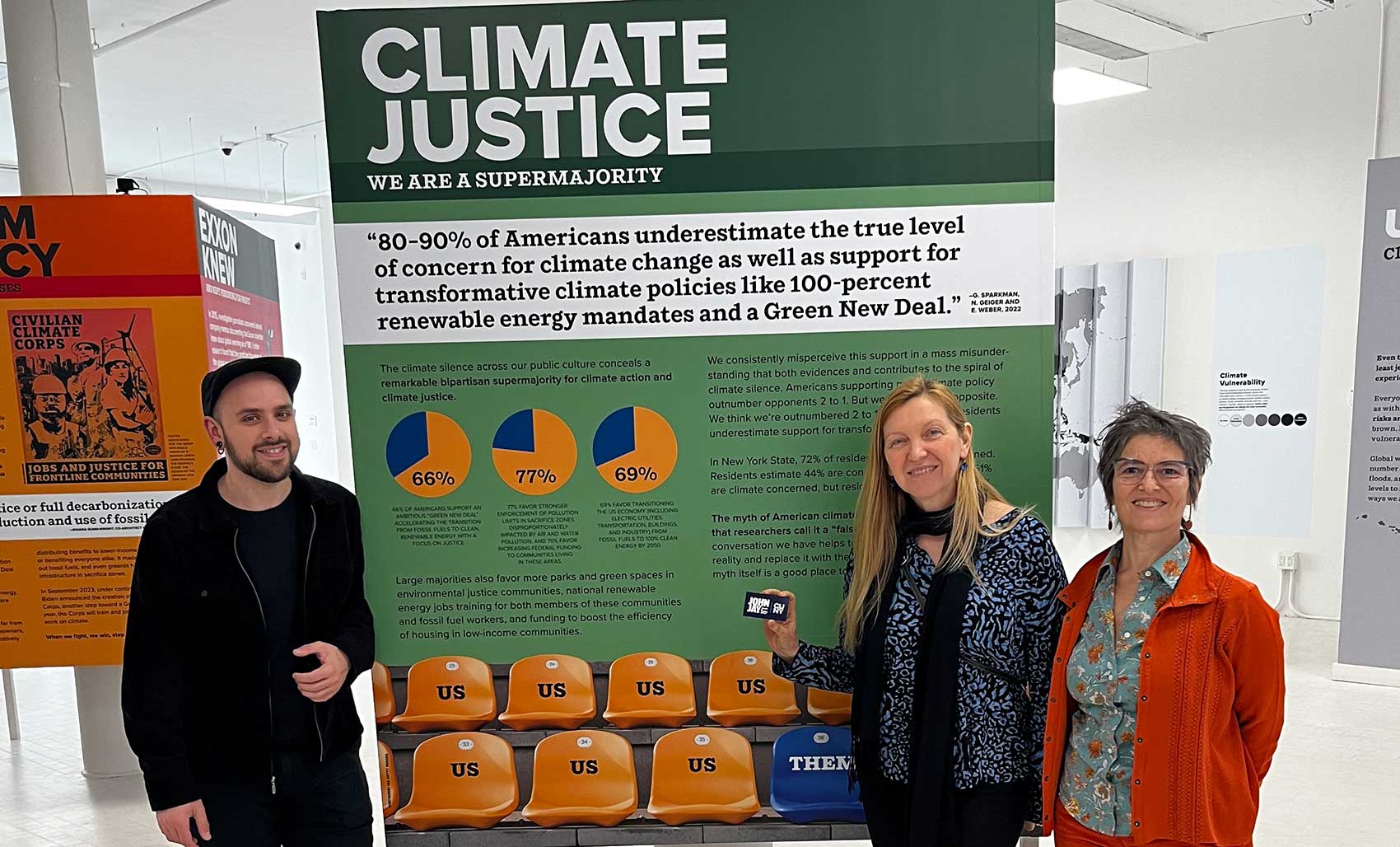
Faculty members LaDawn Haglund (PI), Alejandro Garcia Lozano (co-PI) and Bibi (Silvina) Calderaro (senior personnel) received a grant from the National Science Foundation (NSF) Build and Broaden (B2) Program to investigate how climate change impacts coastal communities in an urban environment.
Social and environmental disruptions due to climate change are rapidly increasing, often disproportionately impacting those with the fewest resources to adapt. Water is arguably the central element of climate risk – where, when and how it moves affects the frequency and severity of floods, droughts, fires, storm surges, hurricanes and excessive heat. These weather events often have unpredictable impacts on human wellbeing, especially when compounded by legacy pollution. “Urban Water Governance, Climate and the Environment” will analyze the alignment between current water infrastructures, policies and practices and emerging environmental challenges; the impact on coastal communities of recent climate interventions; and promising approaches to policy development, implementation and community engagement.
The NSF B2 Program supports fundamental research and research capacity across disciplines at minority-serving institutions (MSIs). MSIs contribute significantly to educating and training science leaders yet receive comparatively few grants from federal agencies. The B2 Program seeks to advance research collaborations and networks involving MSI scholars and support activities that increase students' pursuit of graduate training, enhance PI productivity, build research capacity and cultivate partnerships. The John Jay team’s proposed project supports undergraduate research and teaching to further upward mobility and competitiveness of John Jay students with a focus on expanding the Sustainability and Environmental Justice Program, produces evidence-based recommendations to support community resilience and ultimately seeks to build a permanent center for water and climate justice.
PI Haglund, an associate professor in the Department of Political Science, researches and teaches human rights, environmental justice, political economy and socially transformative processes. She will take the lead on research and writing focused on water policy and governance, oversee the project as a whole, and mentor students alongside her colleagues.
Co-PI García Lozano, an assistant professor in the Department of Anthropology, is an interdisciplinary social scientist and environmental anthropologist who focuses on human-environment relations and the politics of natural resources. They have expertise in the study of collective action and social organization for the governance of common-pool resources such as fisheries, as well as the cultural dimensions of struggles over the commons and challenges to decent working conditions in fishing. They will take the lead on ethnographic research, participatory processes and student training.
Faculty Associate Silvina (Bibi) Calderaro is a lecturer in the Interdisciplinary Studies Program who specializes in urban education’s role in magnifying climate action and environmental justice through situated pedagogies. She has designed and implemented a week-long pedagogical experience for educators in the lower Hudson River estuary, gaining access to remote areas by kayak, facilitated workshops and designed and conducted semi-formal interviews with communities across NYC about environmental issues. Her expertise, networks and collaborative experiences are key for the project’s goals to mentor students into community leadership, develop research-based curriculum, integrate academic and non-academic knowledge production and build relationships to support convergence across constituencies and sectors.
For more information on the project senior personnel, please click here.



